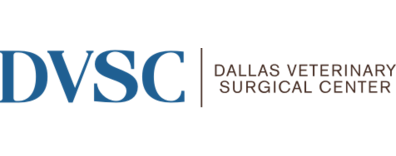Dallas Veterinary Surgical Center
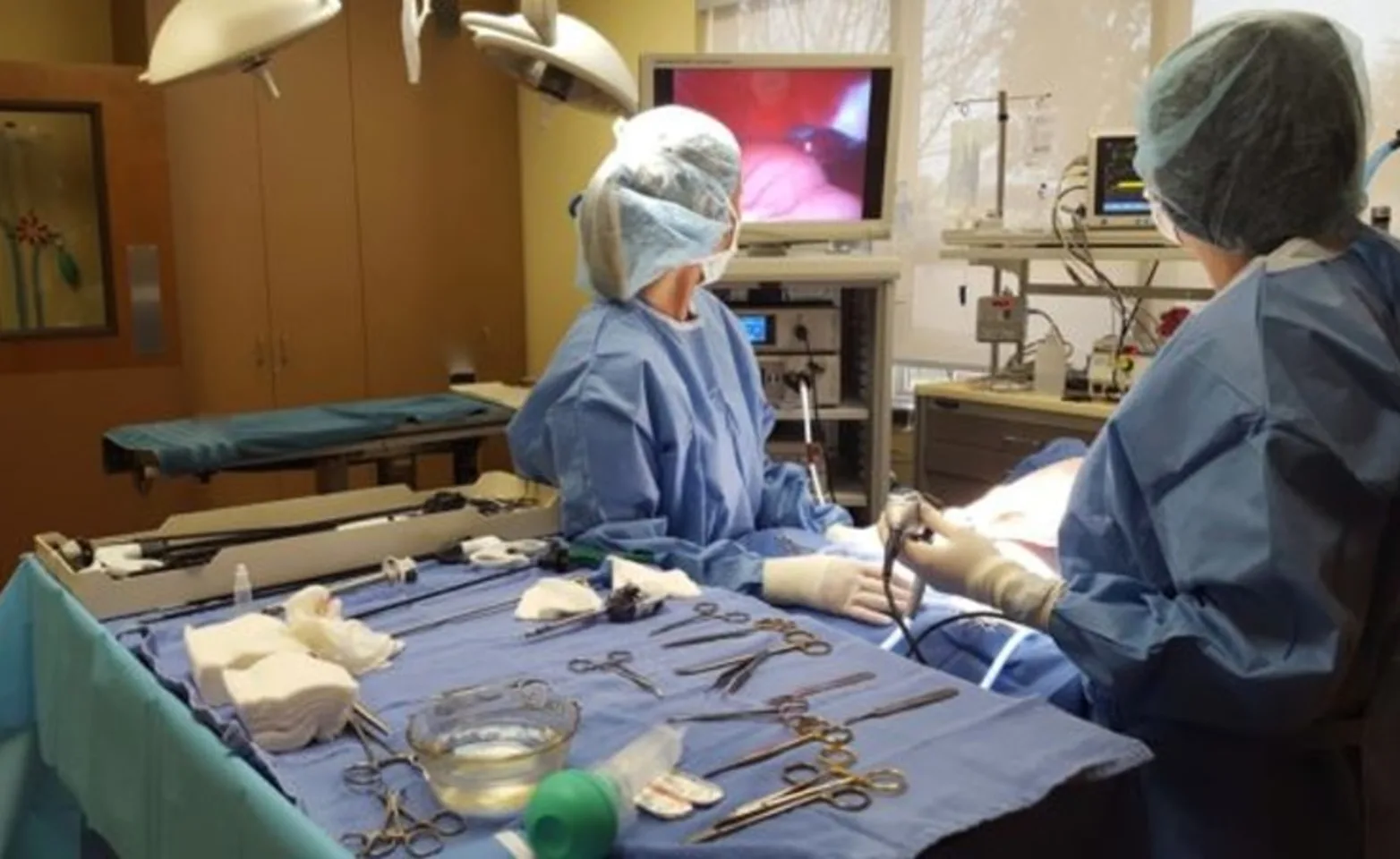
In addition to arthroscopy, the DVSC offers a complete array of laparoscopic and laparoscopic assisted procedures.
As the demand for minimally invasive soft tissue procedures has grown, so has our commitment to providing cutting edge care for our small animal patients. The advantages of laparoscopic procedures versus open procedures are similar to our arthroscopy patients:
less invasive with less patient morbidity,
quicker recovery time with less postoperative pain and
quicker return to normal activity.
During the initial consult, the surgeons at the DVSC discuss the options of laparoscopic intervention versus a traditional open approach to the abdomen.
Many diseases and cases presented to the DVSC are not candidates for laparoscopy. Often times, the surgeon needs to be able to manually evaluate the intraabdominal organs, and open surgery may be recommended.
We also warn every client that if laparoscopy is recommended, and if we nd that the procedure cannot be completed with the scope, then conversion to an open procedure may be necessary.
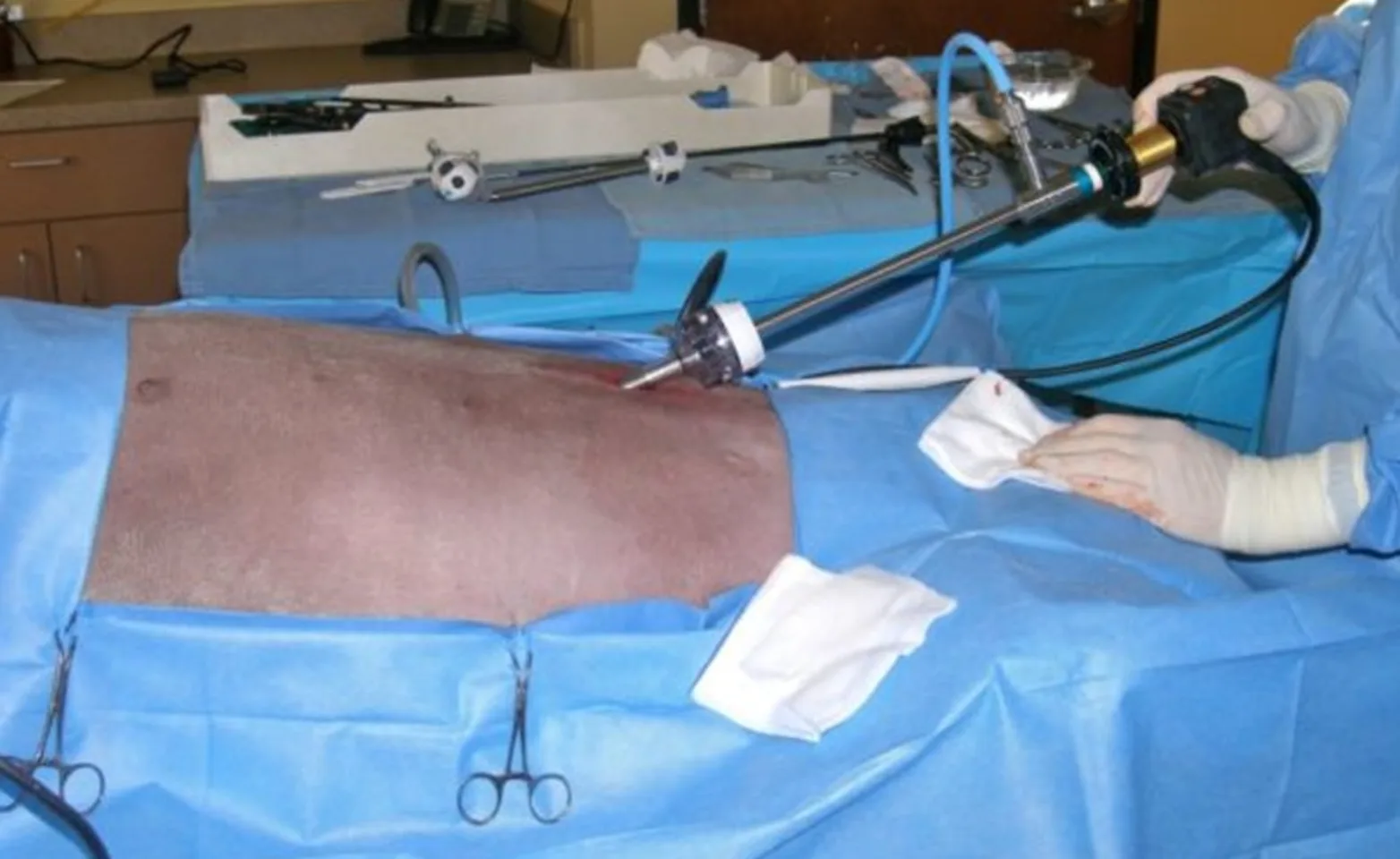
With laparoscopy, the abdomen is rst distended with carbon dioxide. We then introduce a 5 or 10 mm laparoscope that is connected to a video monitor.
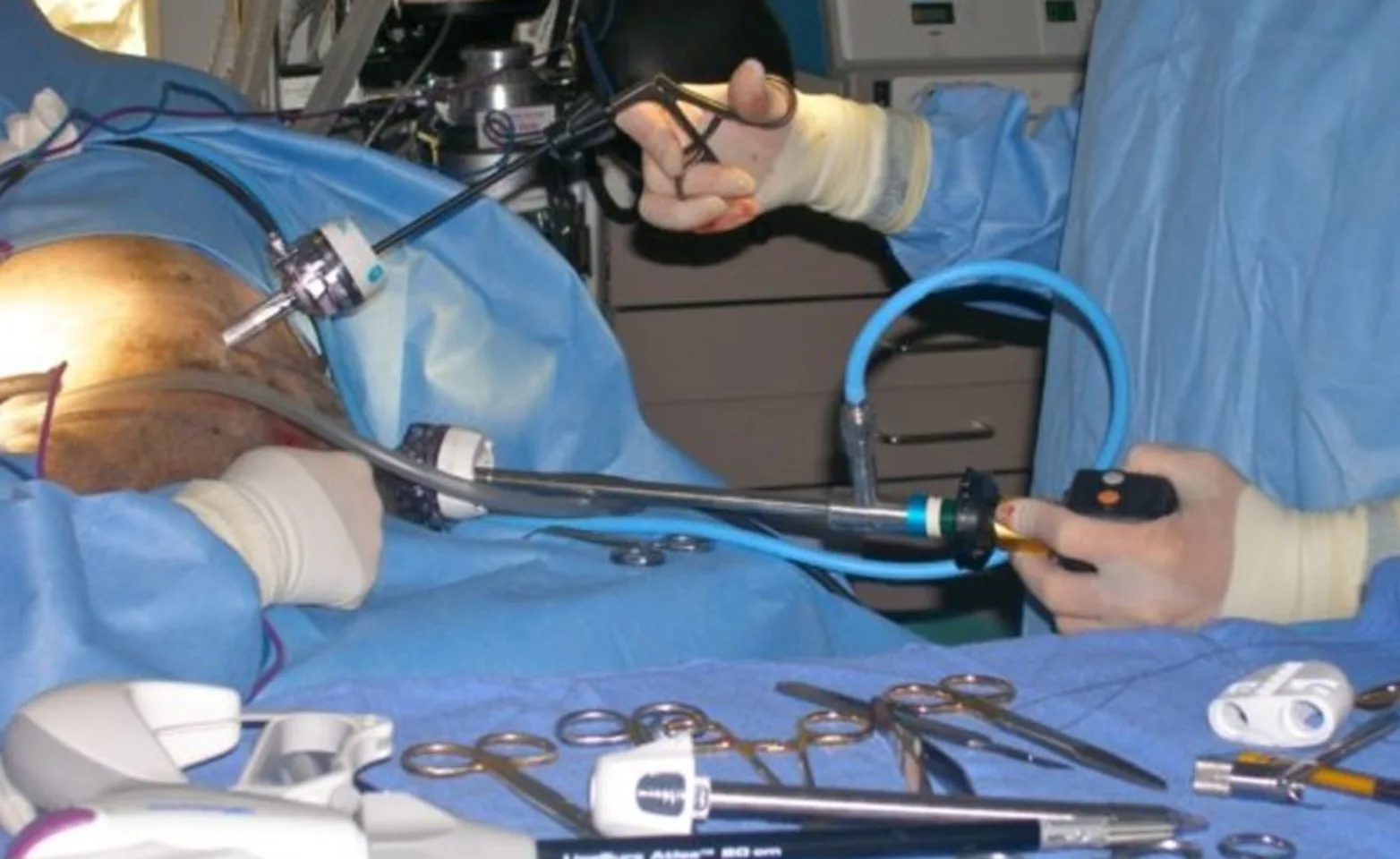
One or more additional portals are established to provide access for our hand instruments, which allow us to complete the surgical procedure:
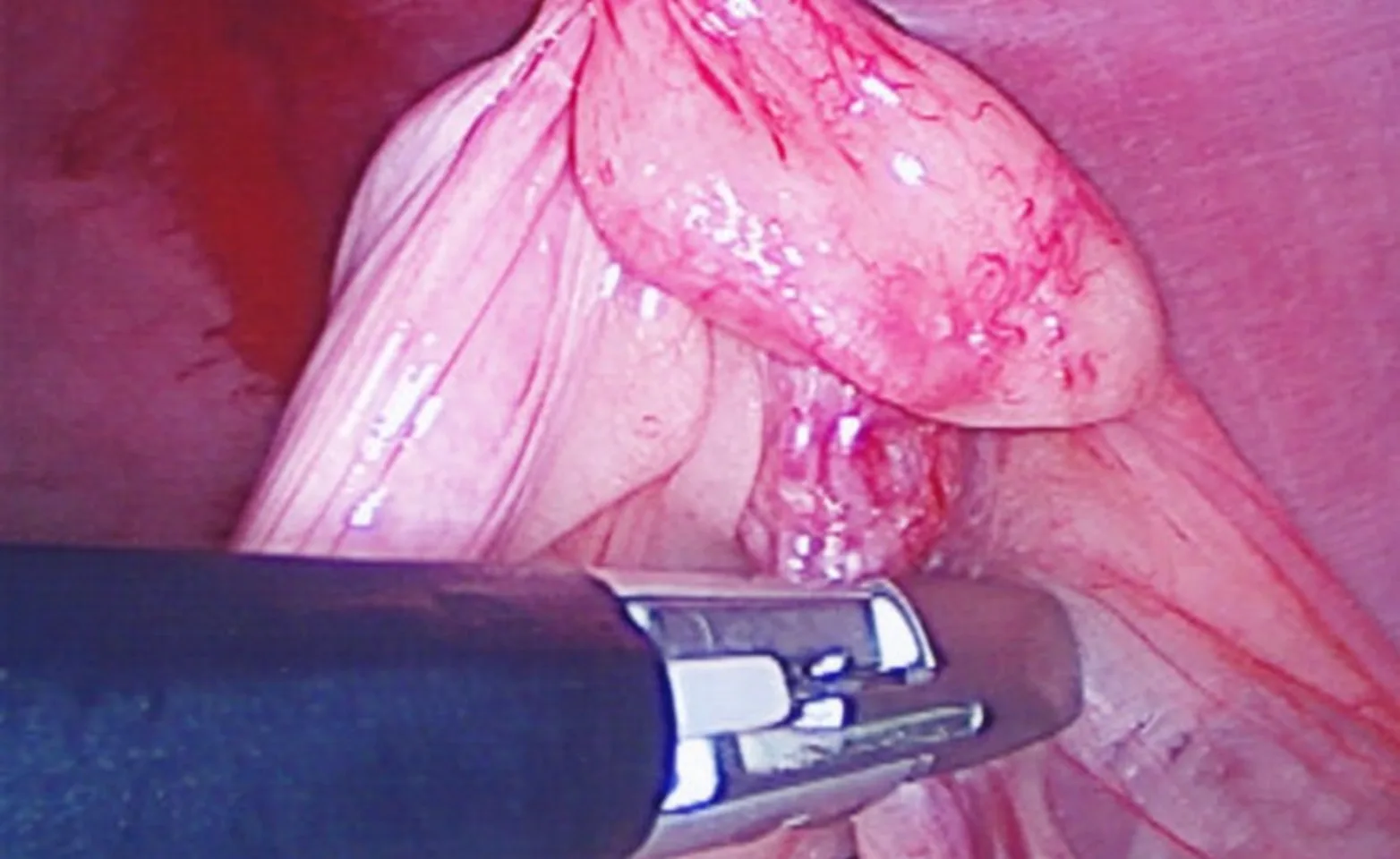
A special cauterization and cutting device (Liga Sure) is often used to facilitate removal of organs while providing hemostasis:
Following is a partial list of the laparoscopic and laparoscopic assisted procedures that may be done at the Dallas Veterinary Surgical Center:
Placement of feeding tubes (jejunostomy, gastrostomy, etc.)
Removal of certain tumors
Examination for presence of diaphragmatic hernia
Abdominal cryptorchid castration
Removal of bladder stones
Gall bladder aspiration/removal
Laparoscopic assisted Intestinal biopsy
Stomach biopsy
Kidney biopsy
Liver biopsy
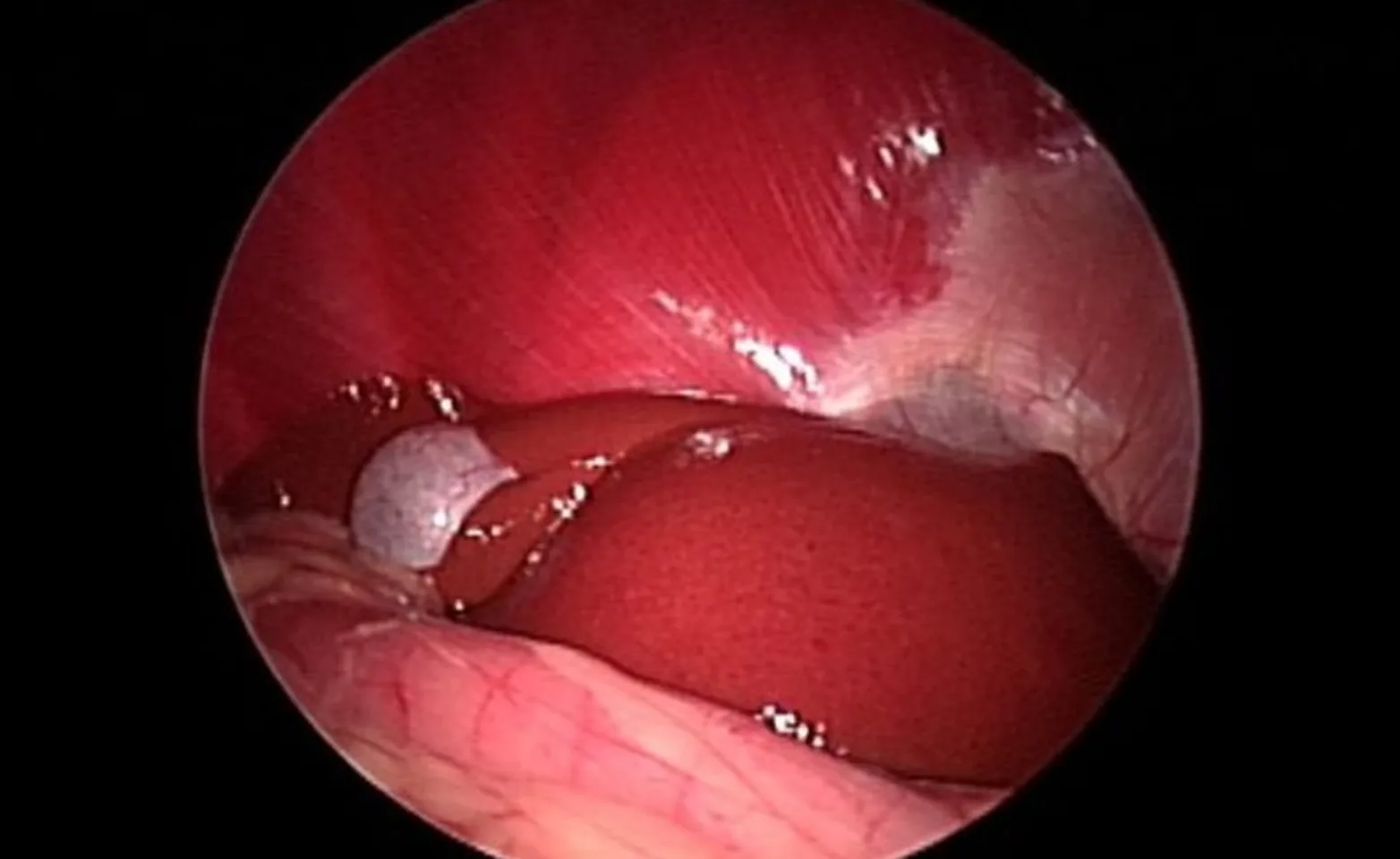
Healthy Liver
Author: Dr. Joanne Franks, DVM, DAVCS
